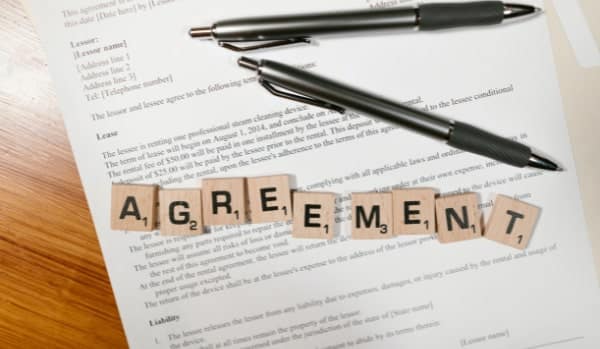Those who work in commercial real estate are all too familiar with the abundance of information that must be tracked. Moving parts include tenant payments, rent escalations, lease expirations, maintenance requests — and on top of everything else, certificates of insurance.
What is a COI ?
A Certificate of Insurance (COI) is a document issued by an insurance company or broker. It confirms that an insurance policy is in effect. It also outlines its terms and conditions. A standard COI typically includes the policyholder’s name, the policy’s effective date, the type of coverage, policy limits, and other essential details.
Without a COI, a company or contractor may struggle to secure clients. This is because potential clients are often reluctant to assume the risks associated with the costs that could arise from the contractor’s or provider’s actions.
Why Certificates of Insurance Matter
As a commercial real estate manager, you must ensure each of your tenants lists you as an additional insured on their insurance policies. Most lease agreements contain clauses that require COI verification. These clauses require tenants to have and maintain valid insurance coverage. Additionally, they specify the type and extent of coverage required. Failing to meet these requirements could constitute a breach of contract.
Micah Colbert, Sales Advisor for Lee Agency Insurance, explains just why COIs matter. “Certificates of Insurance are an important way to support that the person you are working with has proper limits in case the unimaginable happens,” said Colbert.
“Many insurance carriers require that COIs are provided, and some also require that you are added as an additional insured (AI),” explains Colbert. “ If the tenants or management companies do not provide an up-to-date COI or the limits and coverages are insufficient, there is a chance that a carrier could exclude coverages.”
His advice? Make sure to have a relationship with an insurance agent so they can help you manage this.
Even though you may have your own insurance for your property, it’s important to verify that others with whom you regularly do business are adequately insured for their specific type of operation. A restaurant will have different insurance needs compared to a medical clinic. Examples of types of coverage may include liability coverage, property coverage, and worker’s compensation. The depth and details of coverages are rather vast and vary depending on the operation.
How to Validate a Commercial Real Estate COI
COIs are typically provided directly by the insurance company listed in the COI as (the agent on record) rather than the policyholder. Make sure that the insured’s name on the certificate matches the tenant. It is also important to verify that their coverage complies with the terms outlined in your lease. You’ll also want to check the dates the coverage is valid. If it expires before your tenant’s lease expires, you will need to request an updated COI.
What Are The Details of a Certificate of Insurance
Certificates of insurance (COIs) provide essential details regarding various types of liability coverage. This includes general liability, auto liability, umbrella liability, and workers’ compensation. The term “insured” designates the policyholder—whether an individual or a company—who is represented on the certificate as covered by the insurance.
In addition to indicating coverage levels, the COI includes the policyholder’s name, mailing address, and a description of the operations conducted by the insured. The document also features the address of the issuing insurance company. It includes contact information for the insurance agent or the designated representative from the agency. If multiple insurance companies are involved in the coverage, the COI will list all relevant names and contact details.
When a client requests a COI, they are deemed a certificate holder. Their name and contact information are prominently displayed in the bottom left corner. Additionally, there are declarations ensuring that the insurer will notify the client in the event of any policy cancellations.
The certificate succinctly outlines the insured’s policies and the coverage limits for each type. Keep in mind that, due to varying state laws, the workers’ compensation section will typically show no limit on benefits for injured workers. However, limits for employer’s liability coverage should be explicitly stated.
What COI Information Must Be Tracked?
Tracking information can cause a headache, and you might feel tempted to just take people’s word for it and trust that they have insurance. However, having a COI in hand not only allows you to verify their coverage — it’ll also help you keep track of vital information, such as:
- Policy coverage dates
- Type(s) of coverage
- Limits of each type of coverage
COIs include many moving parts. While obtaining the COI is a necessary first step, it is really only accurate the day you receive it. The insured party is free to cancel or alter their coverage at any time. Alternatively, they could forget to pay their premium with you being none the wiser.
Even as a certificate holder or additional insured, most policy provisions do not convey to you any rights. If an insurance policy changes or ceases, nobody is obligated to inform you. Therefore, as a commercial property manager, it’s your responsibility to stay on top of the data. Or in the event the unthinkable happens, as the owner you are completely on the hook if something should happen.
Use STRATAFOLIO to Keep Track of Certificates of Insurance
Historically, property managers had to track this information by hand, manually obtaining and maintaining data from tenants and stakeholders. A manual process like that is not only tedious — it has the potential for misplaced and overlooked information.
Thankfully, nowadays there are programs like STRATAFOLIO to help property managers track and automate COIs and insurance policies, among a wealth of other information. With STRATAFOLIO, you can easily incorporate insurance requirements into a lease. Additionally, you get visual and email alerts when policies are about to expire. Contact us to schedule a demo now!






